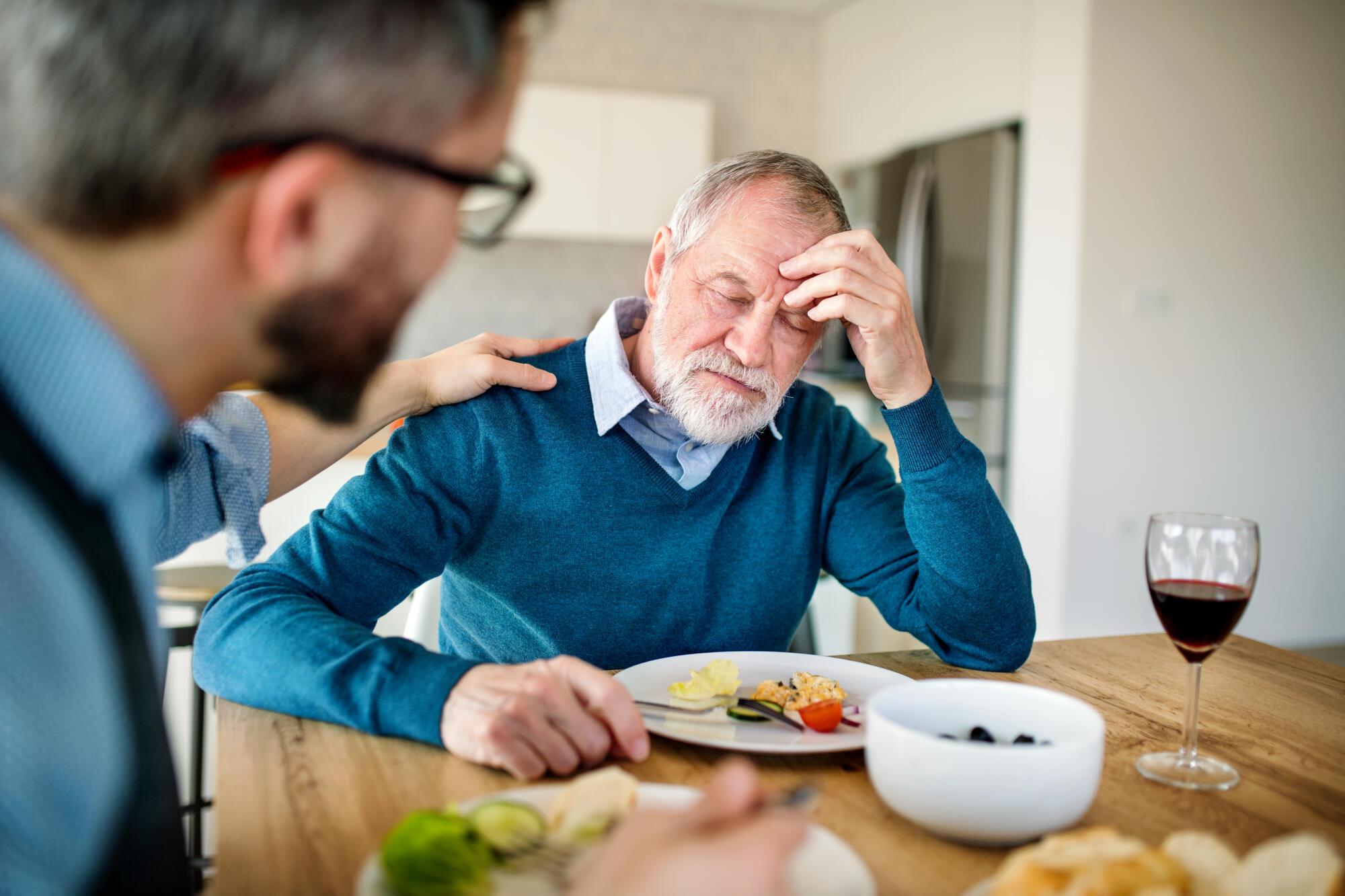
Why Do You Get a Headache After Eating?

Headaches are one of the world’s most common ailments, affecting roughly 40% of the global population, according to data from the World Health Organization. Several causes may be at play, from stress to dehydration. One particularly puzzling cause is getting a headache after eating.
This cause can be confusing since food is supposed to nourish and hydrate the body, presumably preventing headaches. However, there are several reasons why post-meal headaches can occur.
Discover possible reasons for this occurrence and what you can do to relieve and prevent food-related headaches.
Do You Have a Food Allergy?
The cause of your post-meal headaches may be an unaddressed food allergy. The best way to assess food allergies is to talk to a doctor. They’ll ask you to keep a food log to observe reactions after eating; you may be lactose intolerant or have a gluten allergy.
People with celiac disease have strong reactions to gluten, including headaches and migraines. Lactose intolerance from dairy products can cause headaches associated with stomach pains.
Nut allergies are also known to cause headaches, especially in combination with other reactions like hives, nausea, vomiting, and stomach cramps. The stress of having an allergic reaction can also trigger headaches and migraines. Dehydration from such events can cause headaches, as well.
Allergic reactions trigger inflammation in the body. Where there’s inflammation, there’s a higher likelihood of headaches. Other symptoms associated with allergies, like runny nose and congestion may also trigger headaches.
Lack of sleep from allergies may also cause headaches. Clogged nasal cavities make it difficult to sleep at night which can cause morning headaches.
Are You Consuming Too Much Salt?
One of the most common dietary triggers for headaches is sodium.
Research from Johns Hopkins University found that ingesting an abundance of salt increases fluid retention in the body. A rise in fluid raises blood pressure, which can trigger headaches. Therefore, the research institution encourages those with high blood pressure to adopt a diet low in sodium intake.
Too much sodium may cause blood vessels to constrict and expand at an irregular pace, causing headaches after eating. The dehydration triggered after consuming too much salt is also a leading cause of post-meal headaches.
Managing food-related headaches can be a matter of making the necessary diet changes, as recommended by Johns Hopkins University.
Add the following low-sodium foods to your shopping list to prevent food headaches:
- Lean meats without the skin
- Fresh fruits and veggies
- Canned vegetables and fruit (with no added sugars)
- Whole grains like brown rice, wheat pasta, and oatmeal
- Fresh or frozen fish
- Fat-free milk or plant-based milk
Remember to stay hydrated by drinking the recommended daily intake of nine to 12 cups of water. Along with a low-sodium diet, this combination will help prevent headaches. Consider taking a supplement with anti-inflammatory and antioxidant properties to reduce oxidative stress that causes headaches.
Is Reactive Hypoglycemia the Problem?
Another problem that can arise after eating is a condition called reactive hypoglycemia, also known as postprandial hypoglycemia. This reaction is triggered when there’s a drop in blood sugar levels in the body after eating. A common cause is eating a meal too rich in carbohydrates; too much carbs increases insulin levels, which leads to headaches.
Immediate dizziness or fatigue after eating carbohydrates is another sign of reactive hypoglycemia. Similar to low-sodium diets, switching to a diet with lower carb levels is recommended. However, you can still consume healthy carbohydrates at moderate levels like chickpeas, fiber-rich whole grains, lentils, and fresh fruit.
Remember to drink plenty of water while eating. You should also drink water before and after a meal. Avoid consuming food too quickly and always wait for a meal to digest before enjoying a second helping.
Eating food at night can cause disruptions in digestion and may cause acid reflux after consuming certain foods. Instead, drink water or a supplement-rich beverage at night as a substitute.
Do You Get a Headache After Eating From TMJ?
Do you suffer from Temporomandibular Joint Disorder, more commonly known as TMJ? This condition occurs when there’s a misalignment of the jaw. It can make eating especially painful and cause headaches after meals.
TMJ is often triggered by dental issues, which a dentist can fix with jaw alignment procedures. There are also facial massage methods to relieve pain from TMJ. Pain relievers, both OTC and prescriptions, are also available to manage TMJ pain.
Those with TMJ are encouraged to eat soft-food diets until the condition is remedied. As always, drink plenty of water to stay hydrated and prevent additional headaches from TMJ strain.
More Headache Prevention Tips
General headache management methods can also manage and prevent headaches after eating. Along with hydration, remember to get plenty of sleep at night. Constant tiredness can increase headaches and body aches.
Stress management is another solution. Pick an exercise regimen that appeals to you, like morning walks or light aerobics. Starting a daily fitness routine will circulate healthy blood flow and oxygen, managing headaches in the process.
There are more ways to decrease stress, like anxiety-relieving hobbies. Arts and crafts, reading, nature walks, and social activities can help manage headaches from isolation, lack of fresh air, and job stress. Start keeping a daily planner of activities, including meal planning for low-sodium and low-carb foods.
If you’re still experiencing headaches after eating despite your best efforts, talk to your doctor about other causes and possible treatments. There might be other underlying medical conditions that require clinical treatment.
Manage Your Food-Related Headaches
Talk to your physician about your latest headache after eating. Consider the above symptoms, treatments, and prevention methods to mitigate your headaches as much as possible, including food sensitivity symptoms.
An online doctor from Kiwi is available to review your medical history and make the necessary recommendations to treat your post-meal headaches. There’s also a wide selection of both prescription and OTC solutions to consider like vitamins and supplements to manage headaches.
Kiwi is proudly supported by the Pharmacy Guild of New Zealand and has been a trusted source of medication and remedies for over 40 years.
Contact a representative today to learn more about our process.
Related Posts


Combat Winter Colds: Essential Tips for Robust Health
December 20, 2025